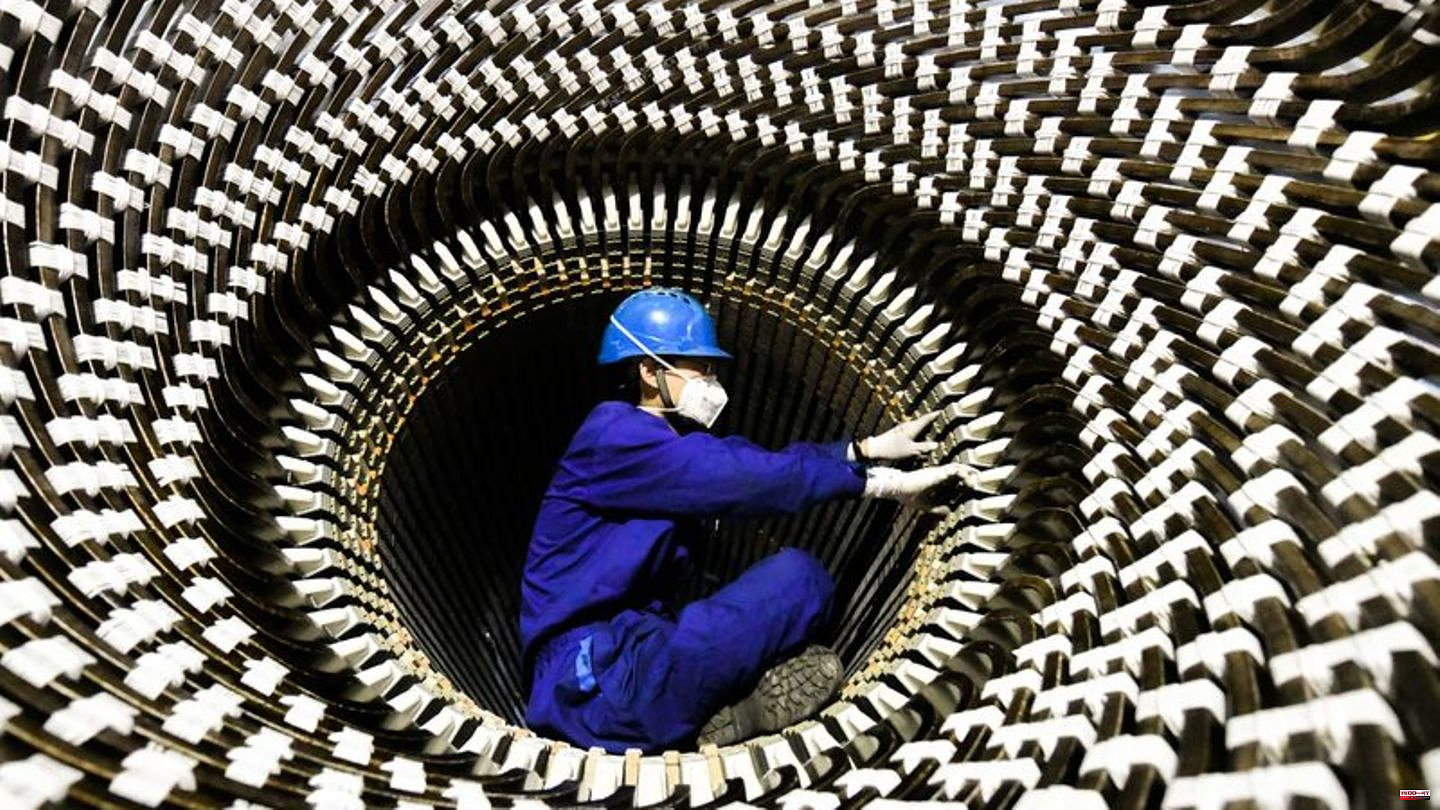Chinese investors have sharply reduced their company acquisitions in Europe. According to an analysis by the management consultancy EY, there were 139 takeovers or investments by Chinese investors in European companies last year, 16 fewer than in 2021.
The authors of the study published on Tuesday put the estimated value of these 139 deals at just 4.3 billion dollars (4 billion euros), which would be a decrease of almost two-thirds compared to the previous year. However, EY points out that the purchase prices for the majority of these acquisitions have not been published.
The extent of the Chinese reluctance becomes particularly clear in a longer-term comparison with the record year 2016. At that time, EY counted 309 company acquisitions or investments by Chinese investors in Europe with a total volume of 86 billion euros. Seven years ago, the biggest deal in Germany was the purchase of the Augsburg-based robot manufacturer Kuka by the Chinese Midea group, which alone cost an estimated 4.7 billion dollars.
Are controversial bulk purchases now being avoided?
Since then, the numbers have fallen almost continuously, and Chinese takeovers are also rare in Germany at the moment. According to EY, there were only 26 takeovers or investments in German companies for just under $290 million last year. The EY figures suggest that buyers from the People's Republic are now avoiding politically controversial large-scale purchases.
Apart from political hurdles and tensions between China and the West, the draconian Covid restrictions in China, which have now ended, also played a role, according to EY. Travel restrictions and strict quarantine rules have made transactions difficult, said Sun Yi, head of China Business Services for Western Europe.
According to the management consultant, more Chinese companies in Europe will be on the lookout for takeover candidates this year. "However, the number of deals will continue to be significantly lower than in the boom years, not least because of the political framework," Sun predicted.
In a survey by the German Chamber of Commerce (AHK) in Beijing last year, member companies cited the strict pandemic measures as the main reason for reducing their investments in China or exiting the market altogether. The mood of German companies had reached a low point. At the beginning of December, Beijing then made an abrupt about-face and lifted most of the corona measures after a good three years.
Optimism returns
After the rapid spread of the corona virus in the country, everyday life has returned to normal in many places - and optimism is also returning among foreign companies. According to the Chamber of Commerce, many companies are expecting a positive development in their China business, especially from the second or third quarter. Investments should therefore pick up again.
The Chinese economy has recently shown signs of stabilization. The mood in industry has brightened significantly. The IMF has raised its growth forecast for the Chinese economy this year from 4.4 to 5.2 percent.
In the meantime, Chinese companies have also begun to put out feelers abroad again after the end of the strict Corona travel restrictions. German company representatives report on numerous Chinese business delegations that have visited Germany and other European countries since the beginning of the year.
The CDU politician Julia Klöckner spoke out in favor of a realignment of Germany's economic policy with China. Klöckner told the German Press Agency that China and the EU, especially Germany, have a close economic partnership that has brought prosperity to both sides over the past decades. "But we're not just partners, we're also competitors and rivals with different political systems."
New China strategy in progress
Among other things, Klöckner called for better protection of the European infrastructure, for example with uniform investment controls and a common exclusion list of which investments are not possible. Klöckner also wants an incompatibility decision. One cannot be a member of the EU and a member of the "Silk Road" at the same time.
This gigantic project, launched in 2013 by head of state and party leader Xi Jinping and investing billions, is intended to create trade corridors not only overland but also over sea with stakes in a number of important ports.
The federal government is developing a new China strategy. Dependence on China is to be reduced and delivery routes are to be broadened. In the fall, the cabinet decided at the urging of Chancellor Olaf Scholz (SPD) that the Chinese group Cosco can take a 24.9 percent stake in a terminal in the port of Hamburg - instead of the planned 35 percent. Several ministers wanted to ban participation completely.








